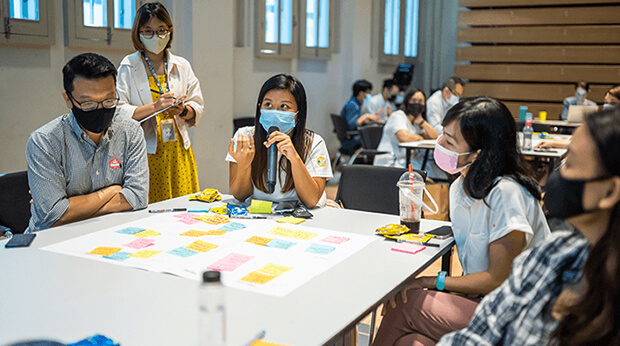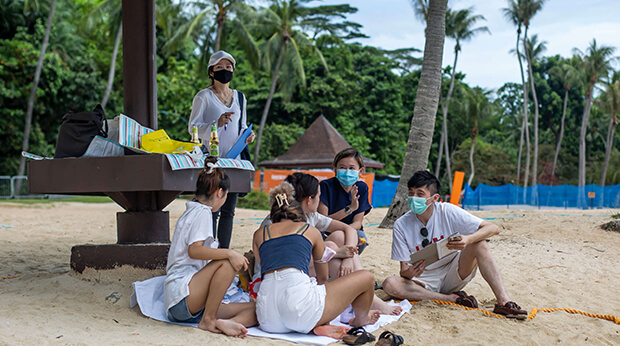ALEXANDRA HOSPITAL
Designing Patient-Centred Care
Understanding patient needs & motivations to ensure that positive health outcomes can be sustained after hospital discharge
Posted on 18th November 2021
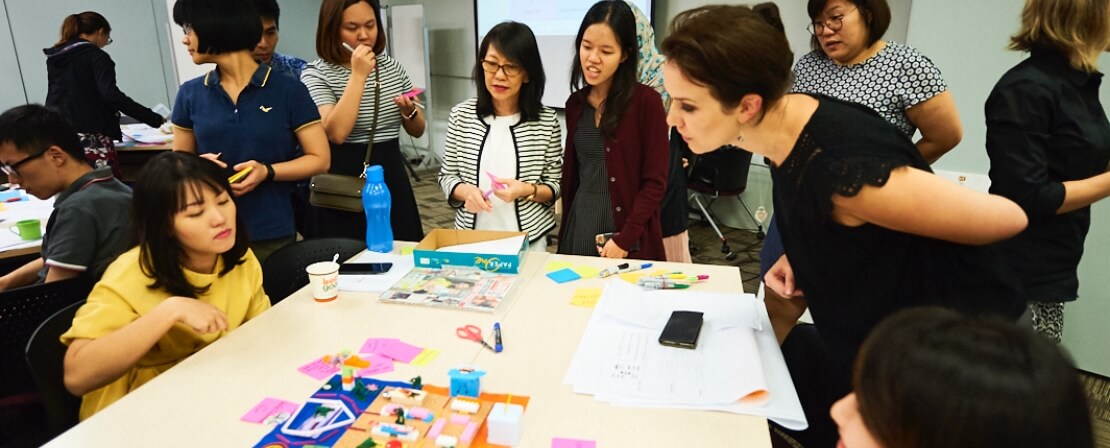
Posted on 18th November 2021
BACKGROUND
In 2019 the School of X worked with the Ministry of Health’s Office for Healthcare Transformation and Alexandra Hospital, over a three-day programme, to bring together clinical and operations hospital staff, together with patient-representatives, and residents with diverse healthcare experiences, to explore opportunities to create more impactful post-discharge plans for patients.
THE CHALLENGE
Alexandra Hospital is taking a whole-of-community approach to designing care models, recognising the important role that social, behavioural and environmental factors play in the health and well-being of patients, as part of its strategy to become an Integrated General Hospital. To this end, patients and Queenstown residents will play a significant role in co-designing and co-creating care services and models, as they are best placed to understand how to maintain their health beyond the hospital.
This project focused on the needs, motivations, opportunities and pain points for patients transitioning from hospital to home, and explored opportunities for extending care beyond the hospital.

UNDERSTANDING
Participants carried out user research across different parts of the hospital, including hospital wards and clinics, as well as in local housing estates and community centres, in order to gain diverse perspectives on the complex issue of sustaining health outcomes post-discharge from hospital.
The aim of the user research was to understand the existing experiences for patients and care providers, through observational and conversational research, as well as assessing data relating to care outcomes and hospital readmissions in order to identify gaps, needs and opportunities for improving pathways and resources for patients transitioning from hospital to home.

CREATING
Thanks to the mixed-profile of participants in the workshop teams, the process of creative idea generation was rich and innovative. Drawing on diverse personal experiences and backgrounds, participants were encouraged to build up wild card solutions to help them break out of their entrenched approaches to care delivery, and unlock very different ways of thinking. The participants themselves pushed one another beyond their standard problem solving lenses, and drew inspiration from one another’s different viewpoints.
This enabled highly empathetic solutions to be developed, which participants then crystallised into actionable deliverables for testing. The blend of community participants and hospital staff allowed balanced ideas to be developed, reflecting strong ideas to gain resonance and traction in home or community settings, while working within the constraints of healthcare regulation and requirements.
This project evidenced the great benefit of the co-design process, thanks to the blend of expertise and experience amongst the participants.

DOING
Having synthesised the abundance of ideas generated into solution concepts, the teams built mock-up models of their solutions (prototypes) to help iterate and improve their designs, and enabling them to pitch their ideas to an expert panel of designers and healthcare leaders, in order to get valuable feedback to guide subsequent iterations.
Alexandra Hospital subsequently continued to develop ideas emerging from their project, helping to enable stronger engagement with patients through consolidated care plans and sustained care at home through different means.


It is important to take in the voices of patients and their communities, as they are often in a position to describe their care needs, and imagine ideas that can help address such needs.
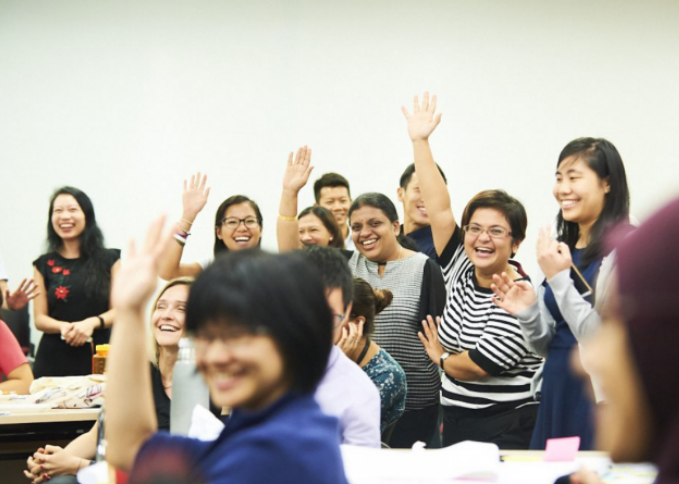
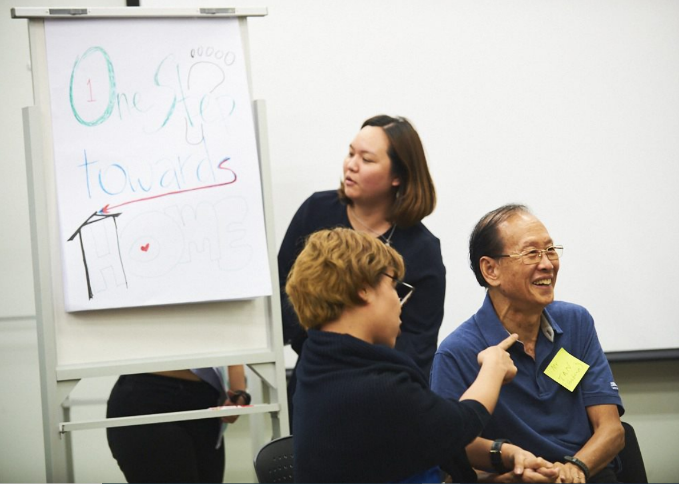
RECENT PROJECT STORIES
We love bringing people together to make a positive difference, through design. Take a look at some of the other challenges we’ve tackled


